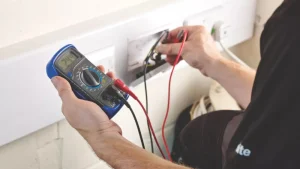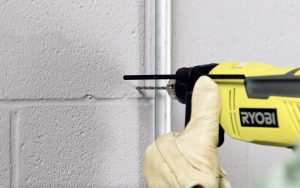Have you heard the news? Honda, a brand synonymous with reliability and innovation, is discontinuing its production of lawn mowers.
If you’re someone who takes pride in your perfectly manicured lawn, this announcement might have left you with more questions than answers. Why would a company known for its quality gardening equipment make such a surprising move? What does this mean for you and your future lawn care needs?
We’ll delve into the reasons behind Honda’s decision, exploring the shifting market dynamics and technological advancements that have shaped this choice. Understanding these factors can help you make informed decisions about your lawn care equipment in the future. So, if you’re curious about how this change affects you and what alternatives might be available, keep reading—this is information you won’t want to miss.

Credit: www.youtube.com
Market Trends
Honda’s decision to stop making lawn mowers reflects changes in the market. The lawn care industry is shifting. Consumer habits are evolving. New trends are influencing company strategies.
Shift In Consumer Preferences
Today’s consumers want convenience. Busy lifestyles demand easy solutions. Automated lawn care tools are gaining popularity. Robotic mowers offer time-saving benefits. Traditional lawn mowers require more effort. People are choosing smarter options.
Compact urban living also impacts choices. Smaller lawns need less maintenance. Compact mowers fit urban spaces better. Honda adapts to these changing needs.
Rise Of Eco-friendly Alternatives
Environmental concerns are growing. Eco-friendly tools are in demand. Battery-powered mowers reduce pollution. Electric models are quieter and cleaner. Honda acknowledges this shift. Sustainable options appeal to green-conscious buyers.
Governments support eco-friendly initiatives. Regulations push for cleaner solutions. Honda responds by discontinuing gas-powered mowers. It’s a strategic move to align with environmental goals.

Credit: powerequipment.honda.com
Economic Factors
Have you ever wondered why a brand as iconic as Honda is stepping away from lawn mowers? The answer lies deep within the economic landscape. As costs escalate and supply chains face pressure, Honda finds itself reevaluating its priorities. Understanding these economic factors can illuminate the path Honda chose.
Cost Of Production
Producing a lawn mower isn’t just about assembling parts. It’s about the expenses tied to those parts. Costs rise steadily. Raw materials, labor, and technological investments increase the price tag. Honda, known for its precision and quality, faces tough decisions. High production costs can lead to shrinking profit margins. This makes lawn mowers less attractive compared to their more profitable sectors.
Supply Chain Challenges
Supply chains are the backbone of manufacturing. But what happens when that backbone weakens? Recent global events have disrupted supply chains. You might have noticed delays in deliveries or shortages in stores. Honda faces similar challenges. Parts that once arrived seamlessly now face hurdles. This unpredictability affects production timelines and costs. When supply chains falter, companies must adapt or pivot.
As consumers, you feel the ripple effects of these economic factors. Prices might rise, or products might become scarce. How do you think companies should handle these challenges? Honda’s decision to discontinue lawn mowers is a strategic one. It’s a choice shaped by economic forces that affect us all.
Understanding these factors helps you see beyond the surface. It’s not just about a product disappearing. It’s about the intricate dance of economics and business strategy. How do you see the future of manufacturing in a world where costs and supply chains are constantly shifting?
Technological Advancements
Technological advancements have changed many industries. Lawn care is no exception. Honda decided to discontinue its lawn mowers. They are focusing on new innovations. These innovations promise efficiency and convenience. Let’s explore these exciting changes.
Automation In Lawn Care
Automation is transforming lawn care. Robot lawn mowers are becoming popular. They operate with minimal human effort. Users can set schedules and let the mower work. These machines use sensors to avoid obstacles. They are quiet and energy-efficient. This shift reduces manual labor.
Innovation In Electric Models
Electric lawn mowers are gaining traction. They run on batteries, not fuel. This makes them eco-friendly. Charging is easy and quick. No need for gas or oil changes. Electric models are lighter and quieter. Their maintenance costs are lower. Users enjoy a cleaner mowing experience.
Strategic Business Decisions
Honda’s decision to stop making lawn mowers is a strategic move. The company aims to strengthen its focus on core areas. This shift reflects a thoughtful business strategy. It aligns with Honda’s long-term goals.
Focus On Core Automotive Products
Honda is known for its cars and motorcycles. These products are central to its brand identity. The company wants to enhance its position in the automotive market. Focusing on cars and bikes can lead to better innovation. It helps Honda maintain its reputation as a leader.
Realignment Of Company Resources
Honda is reallocating its resources. This includes manpower and financial investment. The goal is to improve efficiency and productivity. By concentrating on fewer product lines, Honda can streamline operations. It ensures more effective use of resources.
Environmental Regulations
In recent years, environmental regulations have become increasingly stringent, prompting many companies to rethink their product offerings. Honda’s decision to discontinue its lawn mowers is heavily influenced by these regulations. As you consider the impact of these changes, it’s important to understand the key aspects of emissions standards and sustainability goals.
Emissions Standards
Emissions standards are like the rules of a game, determining how much pollution a product can emit. These standards are getting tougher, especially for small engines like those in lawn mowers.
Honda mowers have been reliable players, but meeting these new emissions limits requires significant modifications. It’s like needing to upgrade your bicycle to a motorcycle just to keep up. This can be costly and complex.
If you’re someone who enjoys gardening, imagine your trusty mower now needing an expensive overhaul just to stay in the game. It’s a challenge many companies face, and Honda has decided to shift its focus.
Sustainability Goals
Beyond emissions, sustainability is the broader picture. Companies are now expected to contribute positively to the environment. Honda is aiming for greener pastures. Their sustainability goals are steering them toward more eco-friendly technologies.
Think about how sustainable practices are becoming a priority for everyone. When was the last time you considered the environmental impact of your everyday tools? Honda’s shift reflects a growing commitment to sustainability.
Honda is investing in cleaner technologies, perhaps electric alternatives that align with their green vision. As a consumer, you might wonder how this shift will affect your lawn care routine. Are you ready to embrace more sustainable options?
As environmental regulations tighten, companies like Honda are making bold moves. These changes might inspire you to reflect on your own practices. Are you aligned with the evolving landscape of sustainability and emissions? Honda’s decision is a reminder that change is not just inevitable but necessary for a healthier planet.

Credit: www.motor1.com
Consumer Feedback
Honda’s decision to discontinue lawn mowers stems from consumer feedback highlighting shifting preferences. Many are choosing eco-friendly alternatives over traditional gas-powered models, prompting Honda to focus on sustainable technology.
Consumer feedback plays a crucial role in shaping any product’s future, including lawn mowers. Honda has always been known for listening to its customers, and the feedback they’ve received has been instrumental in their decision to discontinue lawn mowers. Understanding what consumers are saying provides insight into the changing landscape of gardening tools.Performance Concerns
Consumers have raised concerns about the performance of Honda’s lawn mowers. Many users have reported issues related to engine power and fuel efficiency. This feedback has highlighted the need for more robust and energy-efficient models. Some customers have experienced difficulties with the cutting precision, especially on uneven terrain. This has led to dissatisfaction among users who expect a perfect lawn every time. If you’ve ever struggled with a mower that bogs down in thick grass, you know how frustrating it can be. The durability of certain components has also been a point of contention. Frequent maintenance and repairs can turn a simple weekend chore into a costly affair. How many times have you had to pause your mowing session to fix a persistent mechanical issue?Demand For New Features
Today’s consumers are tech-savvy and expect more from their tools, including lawn mowers. Many have expressed a desire for smart features, such as automated mowing schedules and remote control options. These features are becoming standard in other home appliances, so why not lawn mowers? Safety features are another area where consumers are seeking improvements. Enhanced safety mechanisms, like automatic shut-off and obstacle detection, are now in demand. As a homeowner, you might worry about rocks or debris damaging your mower or causing injury. There’s also a growing interest in environmentally friendly solutions. Electric mowers and those with reduced emissions are becoming popular as people become more conscious of their carbon footprint. If you’ve ever been concerned about the environmental impact of your lawn care routine, you’re not alone. By addressing these concerns and demands, Honda is making way for innovations that better align with consumer expectations. What features would you like to see in the next generation of lawn care products?Competitive Landscape
Honda is stopping lawn mower production due to increasing competition and changing market demands. They aim to focus on other growing sectors. This shift allows Honda to allocate resources to areas with greater potential.
The competitive landscape in the lawn mower industry has become increasingly fierce, prompting Honda to rethink its position. The market is evolving rapidly, with new players entering and established brands turning up the heat. This dynamic environment is reshaping the way companies strategize, innovate, and ultimately decide which products to continue or discontinue.Emergence Of New Players
In recent years, many new companies have entered the lawn mower market, bringing with them fresh ideas and innovative products. These newcomers often focus on eco-friendly technology, such as battery-powered mowers, appealing to environmentally conscious consumers. As a consumer, you might have noticed these new brands offering competitive prices and unique features that challenge traditional gas-powered models. This surge of innovation can be exciting but also overwhelming, as it introduces more choices and considerations for your lawn care needs.Pressure From Established Brands
Established brands like John Deere, Toro, and Husqvarna have a strong foothold in the market, pushing the boundaries of technology and customer service. These companies have the resources to invest in research and development, constantly improving their product lines. Honda, facing pressure from these seasoned competitors, must weigh the cost of keeping up with innovation against potential returns. The question arises: should Honda focus on other areas where it has a stronger competitive edge? Honda’s decision to discontinue lawn mowers can also be seen as a strategic move to concentrate on its core competencies and invest in sectors with higher growth potential. This shift could lead to more groundbreaking innovations in areas where Honda already excels, benefiting you as a consumer in the long run.Frequently Asked Questions
Are They Going To Stop Making Honda Mowers?
Honda announced they will stop making gas-powered lawnmowers by September 2023. They will focus on electric models and other products.
Why Is Honda Getting Out Of The Mower Business?
Honda is exiting the mower business due to shifting market demands and a focus on core automotive products. The company aims to invest resources in electric vehicle technology and sustainable mobility solutions. This strategic decision aligns with Honda’s long-term vision for future growth and innovation.
Is Honda Still Making Lawn Mowers In 2025?
Honda has announced it will cease making lawn mowers after 2024. Production ends due to market demand shifts. Honda focuses on other power equipment and engines. Existing models and parts will still be supported. Honda dealers continue offering service and warranty support for past purchases.
Are Gas Lawn Mowers Being Phased Out?
Gas lawn mowers face stricter regulations due to environmental concerns. Many regions encourage using electric models for sustainability. While not completely phased out, gas mowers might become less popular. Check local laws for updates on gas mower restrictions. Electric options offer quieter, eco-friendly alternatives.
Conclusion
Honda’s decision to stop making lawn mowers is significant. Changing market trends influence this choice. More people now prefer eco-friendly options. Battery-powered mowers gain popularity over gas ones. Honda focuses on advancing technology and innovation. They aim to meet new consumer demands.
Environmental concerns also play a role. Companies shift towards greener solutions. Honda’s move reflects these global changes. It’s a strategic decision for the future. This shift may affect the lawn care industry. But it opens doors for new possibilities. Consumers can expect more sustainable options ahead.






